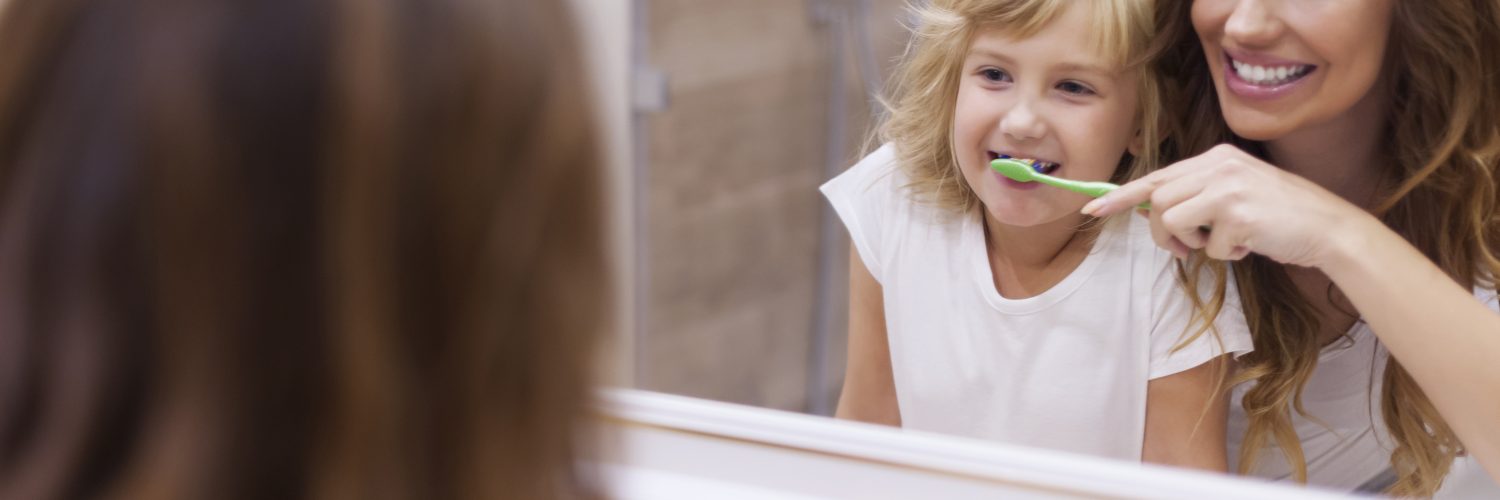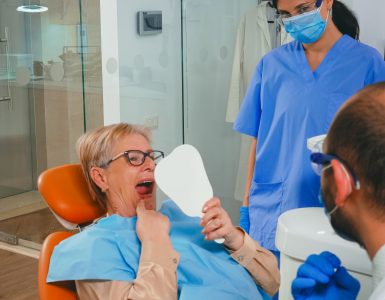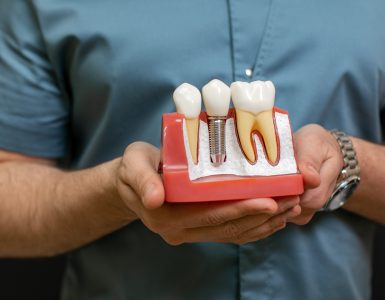From the time your child’s first baby teeth appear, it is important to look after them and as they grow older teach them how to care for their teeth themselves.
Why is it important to care for baby teeth?
You may feel that because your child’s baby teeth will eventually fall out to make way for their adult teeth, it is not so important to care for them. However, because the enamel is softer and thinner on baby teeth, it makes them more prone to damage from tooth decay. These baby teeth hold space in the jaw for the permanent teeth that are growing under the gums. If serious decay causes the tooth to be removed too early, the permanent teeth can move into the empty space. When the adult teeth start to emerge, they may have difficulty finding room causing crowding and crooked teeth. Baby teeth also help with the development of clear speech. Missing or decayed teeth can make it difficult for your child to chew, which can have an ongoing effect on your child’s nutrition should they reject some foods because of it.
When should you start?
Bacteria that causes plaque can begin to affect your child’s teeth as soon as they come through, so you should start brushing them once they appear. There are soft toothbrushes available especially designed for babies and you can begin by just brushing with water twice a day. Alternatively, you could use a soft damp cloth to rub on baby’s teeth and gums before introducing a toothbrush. From about 18 months you can begin to use a pea-sized amount of low-fluoride toothpaste specifically formulated for younger children and babies. Brushing alone is not always enough to remove all traces of plaque and left-over food. The Australian Dental Association (ADA) recommends that you begin flossing when your child has two teeth touching side by side, which is usually around the age of 2.
When should your child visit the dentist?
The ADA recommends that your child’s first visit to the dentist should take place when your baby’s first tooth becomes visible or when they reach 12 months old, whatever comes first. It is important to assess the growth and development of your child’s teeth early to identify any potential problems, so your first visit should ideally take place before they turn 2 years old. Preparing your child for the visit beforehand will help to make the process go more smoothly. Your dentist is used to dealing with children and will help to ease any fears your child many have. Your dentist will be able to check the health of your child’s teeth, discuss any treatments and offer oral care advice. It is important that your child has regular check-ups so any issues can be detected early on.




